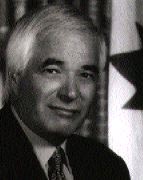| Native lieutenant-governor a first for Ontario, PM says | |||
|
By SHAWN MCCARTHY PARLIAMENTARY BUREAU CHIEF Friday, January 11, 2002 - Print Edition, Page A4 OTTAWA -- Prime Minister Jean Chrétien has named Ontario's first aboriginal lieutenant-governor -- a career diplomat of quiet demeanour -- to replace the vivacious Hilary Weston. Mr. Chrétien announced yesterday that James Bartleman, a member of the Minjikanig First Nation near Orillia, Ont., will be the Queen's representative in the province. He takes up the post in about a month. In making the announcement, Mr. Chrétien squelched speculation that the post might go to Deputy Prime Minister Herb Gray, the veteran Windsor MP who has been resisting pressure to retire. A winner of the National Aboriginal Achievement Award in 1999, Mr. Bartleman has attained the highest rank of any native in the foreign service. The career diplomat is the son of a white father and aboriginal mother and gained his Indian status when the law was changed in 1985 to force bands to allow Indian women to marry non-native men without a loss of status. At the moment, Mr. Bartleman is head of the Canadian mission to the European Union. Between 1994 and 1998, he served as Mr. Chrétien's chief foreign-policy adviser, travelling with the Prime Minister on virtually every foreign trip. He also took responsibility for the political embarrassment the Liberal government suffered over the way demonstrators were treated at the meeting of the Asia-Pacific Economic Co-operation group in Vancouver in 1997. Mr. Bartleman told an inquiry that he was concerned that Indonesia would not attend the summit because of protesters and failed to brief Mr. Chrétien on the fact that police had pepper-sprayed demonstrators, leading the Prime Minister to joke about pepper-spray when asked about the incident. Ms. Weston, who was named to a five-year term in 1997, was a highly public, elegant lieutenant-governor who won rave reviews for her handling of the job. "It's going to be a hard act to follow," Mr. Bartleman said in a telephone interview last night. "We've had a distinguished line of lieutenant-governors and I'll do my best to stay in that tradition." The soon-to-be lieutenant-governor said he has lived on every inhabited continent during his lengthy foreign-service career and can well appreciate Ontario's multicultural nature. He said he received the aboriginal achievement award as a role model for young native people. "This appointment should help in that regard," he said. He also said he wants to work on mental-health issues. Two years ago, Mr. Bartleman was severely beaten in a hotel room in South Africa by a man who got in by pretending to be hotel staff. "I've seen how absolutely deadly the impact of something like that is on a person's mental well-being," he said. "I don't think you ever really get over it." Mr. Bartleman is married with three children.
He is setting out to meet Aboriginal leaders, visit communities and, wherever possible, to bring about meetings between the first peoples of both countries. Mr Bartleman, a distinguished member of the Minjikanig First Nation, Simcoe county, Ontario, said these initiatives were a 'priority personally, as well as a job.' Winner of one of Canada's prestigious National Aboriginal Achievement Awards, James Bartleman understands the value that recognition and the sharing of knowledge and experience can bring to Indigenous people across various fields. His 1999 National Aboriginal Achievement Award was for Public Service, honouring his outstanding 34-year career with the Canadian Department of External Affairs. This career has seen him serve on every continent on earth, in 'hot spots' such as Cuba and Israel, with NATO as an East-West relations specialist and as foreign policy adviser to the Prime Minister, and Assistant Secretary to the Cabinet for foreign and defence policy, Privy Council Office. He holds the highest foreign service rank of any Canadian Aboriginal person. Last month, Mr Bartleman returned briefly to Canada for the announcement of this year's National Aboriginal Achievement Awards. As a winner last year, it was his responsibility to serve on the judging panel for this year's nominees, wading through some 400 entries in his category. He explained that the awards have a high profile in Canada. They are given by the Aboriginal community to the most important Aboriginal achievers in fields such as medicine, law, journalism, youth, business, artistic performance, spirituality and public service. The presentation ceremony, including special performances by leading Aboriginal artists, is broadcast for an hour-and-a-half nationally and watched by two million people. 'This provides an opportunity for the Aboriginal people of Canada to watch what can be done, and is being done, at levels of the elites in their organisations,' Mr Bartleman said. 'It helps get back self-esteem. It also shows mainstream Canadian society the contribution Aboriginal people are making to the Canadian nation as a whole, and enables people to see the impressive talent out there.' Despite residing out of his homeland for much of his life, Mr Bartleman has kept contact with his people, the Chippewas of Rama, returning to the community for major occasions. He carries with him a plastic registration card identifying him as a 'Bill C-31 Indian.' Mr Bartleman says he is proud to be associated with Rama--a combined Mohawk, Chippewa, Ojibway reserve in Port Carling which today is one of the most progressive and industrious reserves in Canada. Whilst he was in Adelaide in March, the High Commissioner invited Australian Indigenous representatives to a gathering he held in honour of visiting Canadian intellectual, Michael Ignatieff. He is looking forward to accompanying the Canadian Minister for Indian Affairs and Northern Development, the Hon. Robert D. Nault, to various places during Mr Nault's visit to Australia in June. In the time of rapid globalisation and improved communication, Mr Bartleman believes 'a central challenge for the world's first peoples is to keep in touch, share wisdom and experiences and to create understanding'. |
|||
| << Back | |||
